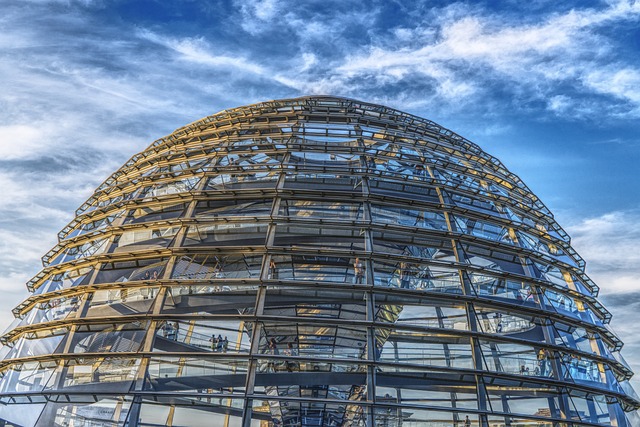Analyzing the Role of Political Debates in Voter Decision Making
11xplay, india 24 bet login registration, skyiplay:Analyzing the Role of Political Debates in Voter Decision Making
Political debates have long been a crucial aspect of election campaigns, providing voters with an opportunity to hear directly from candidates about their policies, beliefs, and visions for the future. These debates serve as a platform for candidates to showcase their strengths, address weaknesses, and persuade undecided voters. In this article, we will delve into the importance of political debates in shaping voter decision making and explore how they impact the outcome of elections.
The Power of Political Debates
Political debates are a fundamental component of democratic societies, allowing citizens to make informed decisions about the leaders who will represent them. These debates offer voters a chance to see candidates engage in real-time discussions on critical issues, providing insights into their leadership qualities, knowledge, and ability to think on their feet.
By watching candidates debate, voters can assess their positions on key policy matters, understand their communication styles, and evaluate their overall readiness for the responsibilities of the office they seek. Debates also help candidates differentiate themselves from their opponents, highlighting their unique perspectives and approaches to governance.
The Role of Debates in Voter Decision Making
The impact of political debates on voter decision making is significant, as they can sway undecided voters, reinforce party loyalties, and mobilize supporters. Research has shown that debates can influence voter perceptions of candidates’ competence, likeability, and trustworthiness, ultimately shaping their preferences at the ballot box.
Debates provide voters with a valuable opportunity to compare and contrast the positions of candidates on key issues, helping them assess which candidate aligns most closely with their values and priorities. By witnessing candidates defend their policies and principles in a live setting, voters can gain a deeper understanding of their potential to lead effectively.
Furthermore, debates serve as a forum for candidates to address controversies, respond to criticisms, and demonstrate their resilience under pressure. How candidates handle themselves during debates can sway undecided voters who are looking for reassurance about their ability to govern effectively in challenging situations.
The Impact of Debate Format and Moderation
The format and moderation of political debates can also play a significant role in influencing voter perceptions and decisions. The structure of debates, including the number of candidates, length of speaking time, and types of questions asked, can shape the dynamics of the event and impact how candidates are perceived by viewers.
Moderators play a critical role in steering debates and ensuring that candidates adhere to the rules and guidelines set for the event. The effectiveness of moderators in maintaining decorum, facilitating meaningful exchanges, and holding candidates accountable can influence voter perceptions of the debate and the candidates themselves.
Debate format and moderation can also impact candidates’ strategies and tactics during the event. Candidates may tailor their messaging, tone, and behavior based on the format of the debate and the style of the moderator, seeking to leverage their strengths and exploit their opponents’ weaknesses.
The Influence of Debate Moments on Voter Perception
Moments from political debates can have a lasting impact on voter perception and decision making. Memorable exchanges, powerful arguments, gaffes, and missteps can shape how voters view candidates and ultimately influence their voting behavior.
Candidates who deliver standout performances during debates, showcasing strong leadership, empathy, and authenticity, can leave a lasting impression on voters that may sway their decision on election day. Conversely, candidates who falter or struggle to articulate their positions effectively may lose credibility and support among undecided voters.
Debate moments can also be amplified by media coverage, social media commentary, and public opinion, further shaping voter perceptions and influencing the narrative of the election campaign. Candidates must be mindful of the potential impact of their words and actions during debates, as even small missteps can have significant consequences for their chances of success.
The Role of Debates in Increasing Voter Engagement
Political debates play a crucial role in increasing voter engagement and participation in the electoral process. By providing a platform for candidates to discuss important issues publicly, debates can educate voters, stimulate political discourse, and encourage civic involvement.
Debates offer voters a chance to learn about candidates’ policy proposals, track records, and qualifications, helping them make more informed decisions at the ballot box. By presenting candidates in a live, unscripted format, debates can humanize them, making them more relatable and accessible to voters.
Moreover, debates can inspire voters to become more active in the political process, encouraging them to research candidates, discuss election issues with others, and ultimately cast their votes on election day. The visibility and significance of debates can also motivate voters to pay closer attention to the election campaign, leading to increased voter turnout and engagement.
The Influence of External Factors on Debate Impact
External factors, such as media coverage, public opinion polls, political endorsements, and campaign events, can also influence the impact of political debates on voter decision making. The context in which debates take place, including the political climate, news cycle, and candidate performances in other settings, can shape how debates are perceived by voters.
Media coverage of debates can amplify or downplay their significance, shaping the narrative of the election campaign and influencing voter attitudes towards candidates. Public opinion polls conducted before and after debates can provide insights into how voter perceptions of candidates have shifted as a result of their debate performances.
Moreover, political endorsements from influential individuals, organizations, and media outlets can impact how voters view candidates and the importance they attach to debates. Candidates who receive endorsements from respected figures or institutions may benefit from increased credibility and support among undecided voters.
Campaign events, such as rallies, town halls, and community forums, can also shape voter perceptions of candidates and their responses to debates. Candidates who demonstrate consistency, authenticity, and accessibility across different campaign settings may enhance their appeal to voters and strengthen their chances of success on election day.
The Future of Political Debates in Voter Decision Making
As technology continues to evolve and change the way we consume information, the role of political debates in voter decision making is likely to evolve as well. Social media platforms, online streaming services, and digital communication tools have expanded the reach and impact of debates, allowing candidates to connect with voters in new and innovative ways.
In the future, political debates may become more interactive, immersive, and personalized, leveraging technology to engage voters and foster dialogue between candidates and the electorate. Virtual reality, artificial intelligence, and data analytics could revolutionize the format and content of debates, creating more dynamic and engaging experiences for voters.
Moreover, as the political landscape becomes increasingly polarized and divisive, the importance of constructive, respectful, and substantive debates cannot be understated. Candidates must strive to engage in meaningful exchanges, focus on policy solutions, and demonstrate empathy and understanding towards diverse perspectives in order to win over undecided voters and build consensus among the electorate.
Ultimately, political debates will continue to play a vital role in voter decision making, shaping the outcome of elections and influencing the course of democracy. By recognizing the significance of debates in fostering informed, engaged, and empowered voters, candidates can leverage this key aspect of the electoral process to communicate their vision, earn voter trust, and secure electoral victory.
FAQs
1. Are political debates mandatory for candidates running for office?
Political debates are not mandatory for candidates running for office, but they are considered a traditional and important part of the electoral process in many democracies. While candidates may choose to participate in debates as a way to engage with voters and showcase their platforms, they are not legally required to do so.
2. How do voters prepare for political debates?
Voters can prepare for political debates by researching candidates’ backgrounds, policy positions, and track records before the event. By familiarizing themselves with the issues at stake in the election and understanding the candidates’ perspectives, voters can better evaluate their performances during the debate and make informed decisions about who to support.
3. How do political debates impact undecided voters?
Political debates can have a significant impact on undecided voters, providing them with insights into candidates’ positions, leadership qualities, and ability to govern effectively. By watching candidates debate, undecided voters can assess which candidate aligns most closely with their values and priorities, helping them make a decision on election day.
4. How do political endorsements influence the impact of debates?
Political endorsements from influential individuals, organizations, and media outlets can impact how voters view candidates and the importance they attach to debates. Candidates who receive endorsements from respected figures or institutions may benefit from increased credibility and support among undecided voters, shaping the outcome of the election campaign.
5. How can candidates leverage social media in conjunction with political debates?
Candidates can leverage social media in conjunction with political debates to amplify their messaging, engage with voters, and shape the narrative of the election campaign. By using platforms like Facebook, Twitter, and Instagram to share debate highlights, interact with supporters, and respond to criticisms, candidates can extend the reach and impact of their debate performances.
6. What are some best practices for candidates participating in political debates?
Candidates participating in political debates should focus on presenting a clear, coherent, and compelling message to voters, while demonstrating empathy, authenticity, and respect for their opponents. By preparing thoroughly, staying on message, and engaging with the audience, candidates can maximize the impact of their debate performances and enhance their chances of success in the election.







